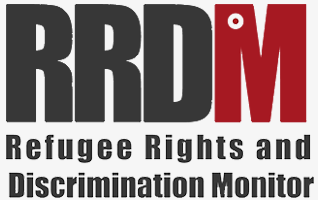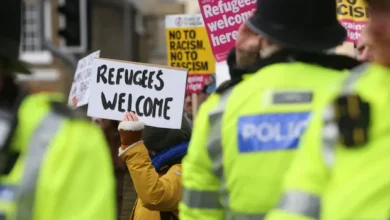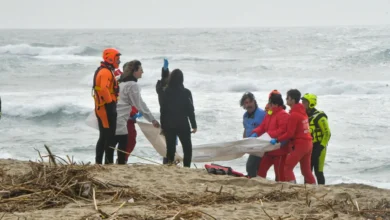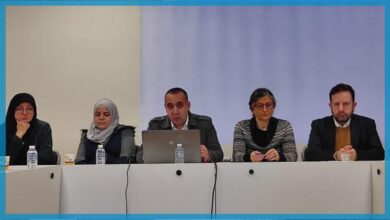Migrants face ‘unprecedented rise in violence’ in EU borders, report finds
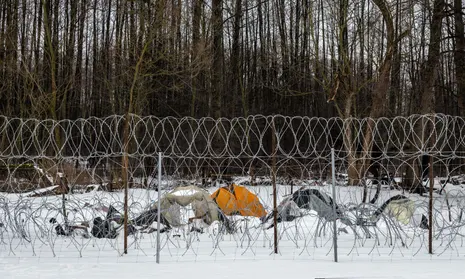
BY| The Guardian
Asylum seekers beaten and sexually assaulted before being illegally removed, says Border Violence Monitoring Network
Thousands of migrants and asylum seekers are facing “an unprecedented rise in violence” at the EU’s border, including beatings, forced undressing and sexual assaults, according to a report exposing thousands of alleged illegal expulsions in harrowing detail.
Activists interviewed 733 individuals trying to reach Europe in 2021 and 2022, who provided grim testimony of group pushbacks that affected more than 16,000 others. The work updates the 2020 edition of The Black Book of Pushbacks, offering a total compilation of 1,633 individuals telling of illegal expulsions affecting nearly 25,000 people since 2017.
The dossier is suffused with misery and desperation, recounting beatings at the hands of police and detention in filthy, overcrowded cells, while requests to claim asylum are ignored or laughed off. In 2021, only 5% of interviewees said they had not experienced or witnessed “excessive force” while being expelled from Europe.
The 3,173-page dossier was compiled by the Border Violence Monitoring Network, a coalition of NGOs that has gathered testimony from 15 countries along the EU’s external border including Poland, Greece, Croatia and non-EU states in the western Balkans such as Serbia, North Macedonia and Albania.
During the coronavirus pandemic “no one was there to document what became an unprecedented rise in the most brutal violence against people on the move along the EU’s external borders”, states the report. It alleges that border guards in 13 countries began implementing “gruesome ‘deterrence tactics’, such as prolonged beatings, shaving of heads, forced undressing, sexual assaults and dog attacks, among others.”
EU and international law enshrines the right to claim asylum and not be forced back across a border to face war or persecution.
Hope Barker, the co-editor of the report and senior policy analyst at the Border Violence Monitoring Network, spent four and a half years interviewing people who had said they had been forced out of Greece. Referring to Greece, she said violence against people on the move had become more systematic since BVMN’s 2020 report. “In the beginning, it seems very sporadic, a few incidents; it became an overall systematised approach that spread deep into the mainland.”
Another trend is what the NGOs describe as a growing attempt to criminalise and suppress activists helping people on the move. Barker said she decided to leave Greece after being surveilled and targeted by police for random checks, and defamed in pro-government media.
The tactics began, she said, after she published a report about proceedings initiated at the European court of human rights in support of people allegedly left stranded by authorities on islets on the Evros river between Greece and Turkey. “We then saw smear campaigns against us in the media, saying that we are facilitating illegal entry into the country, that we were Turkish spies working with smuggling gangs in Turkey, and it led to increased police repression.”
The report alleges that an activist working for the NGO Are You Syrious was stripped of his refugee status by Croatia after he refused to work with the country’s security services.
“The backlash is to attempt to silence our voices and criminalise us as people standing in solidarity with people on the move,” Barker said.
Covering thousands of miles of the EU border, the cases are grimly similar. One recounts the story of a 36-year-old Syrian man and his eight-year-old son, who arrived in the Greek village of Neo Cheimonio in Greece, close to the Turkish border, last February. The pair were travelling with a group of Syrians and were all stopped by officers in sage-green uniforms. Their phones were confiscated and the group was taken to a building, where the men were forced to remove jackets, shirts and trousers. Those who did not understand were slapped, while the woman in the group was searched by a man who “kept touching [her] body” according to the account.
The Syrians joined a larger group of other Syrians, Afghans, Somalis and Moroccans – 58 people in total, aged eight to 60. They were held for four hours in a room with one filthy toilet and a four-tier bunk bed. Later they were each beaten for 10 seconds each, then loaded into a van, before eventually being removed from Greece by boat. During the ordeal, no one was offered, food, water, medical care or a translator. Asked if he had filed his request for asylum, the Syrian man said he could not, because he was afraid he and is son would be beaten.
The Greek government has repeatedly rejected allegations of human rights violations. “It is the right of every European member state to protect its borders with full respect of fundamental rights,” Greece’s prime minister, Kyriakos Mitsotakis, said in July. “This is exactly what Greece has been doing.”
Activists contend illegal pushbacks could be tacitly accepted by EU law. The EU is discussing plans to change its border code to allow authorities to adopt more restrictiowhen facing the “instrumentalisation” of migrants, i.e. foreign governments seeking to destabilise the EU by encouraging people to go to Europe.
The proposed changes came after Belarus’s autocratic leader, Alexander Lukashenko, was accused of luring people from the Middle East to Belarus and then busing them to the EU in an attempt to cause chaos in the bloc. Faced with such a situation, member states could limit border crossing under a revised regulation currently under discussion.
NGOs argue this will fuel more illegal pushbacks. “There’s so much room for interpretation by member states that this could be used, this could be triggered at will to allow massive pushback with individuals without any kind of accountability,” Barker said.
Cornelia Ernst, a German member of the group the Left in the European Parliament, which commissioned the study, accused the European Commission of failing to act when EU governments were “pushing people back and denying them the right to asylum”. She added: “We see that the right to asylum is seriously under attack. The EU is funding more and more border forces perpetrating violence and member states like Poland, Lithuania and Latvia are adopting laws aiming at legalising pushbacks, legislation that violates the EU and international law.”
